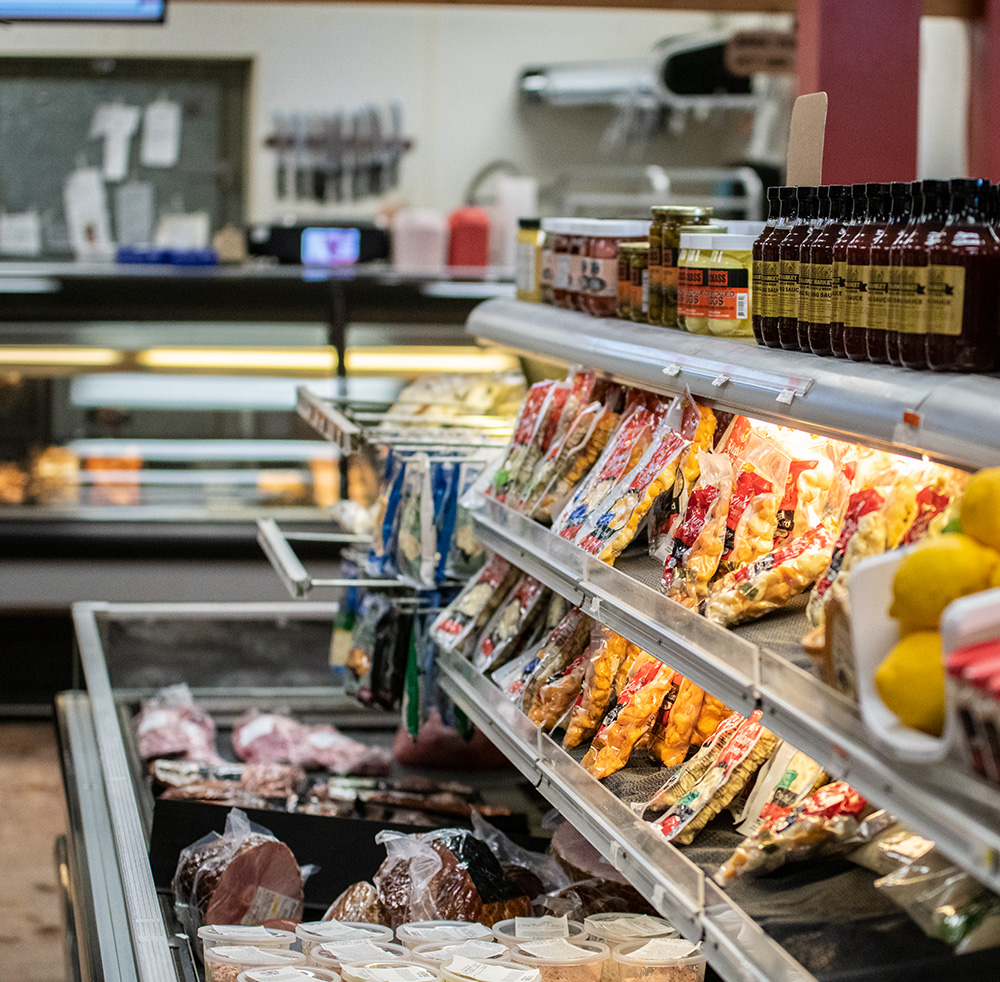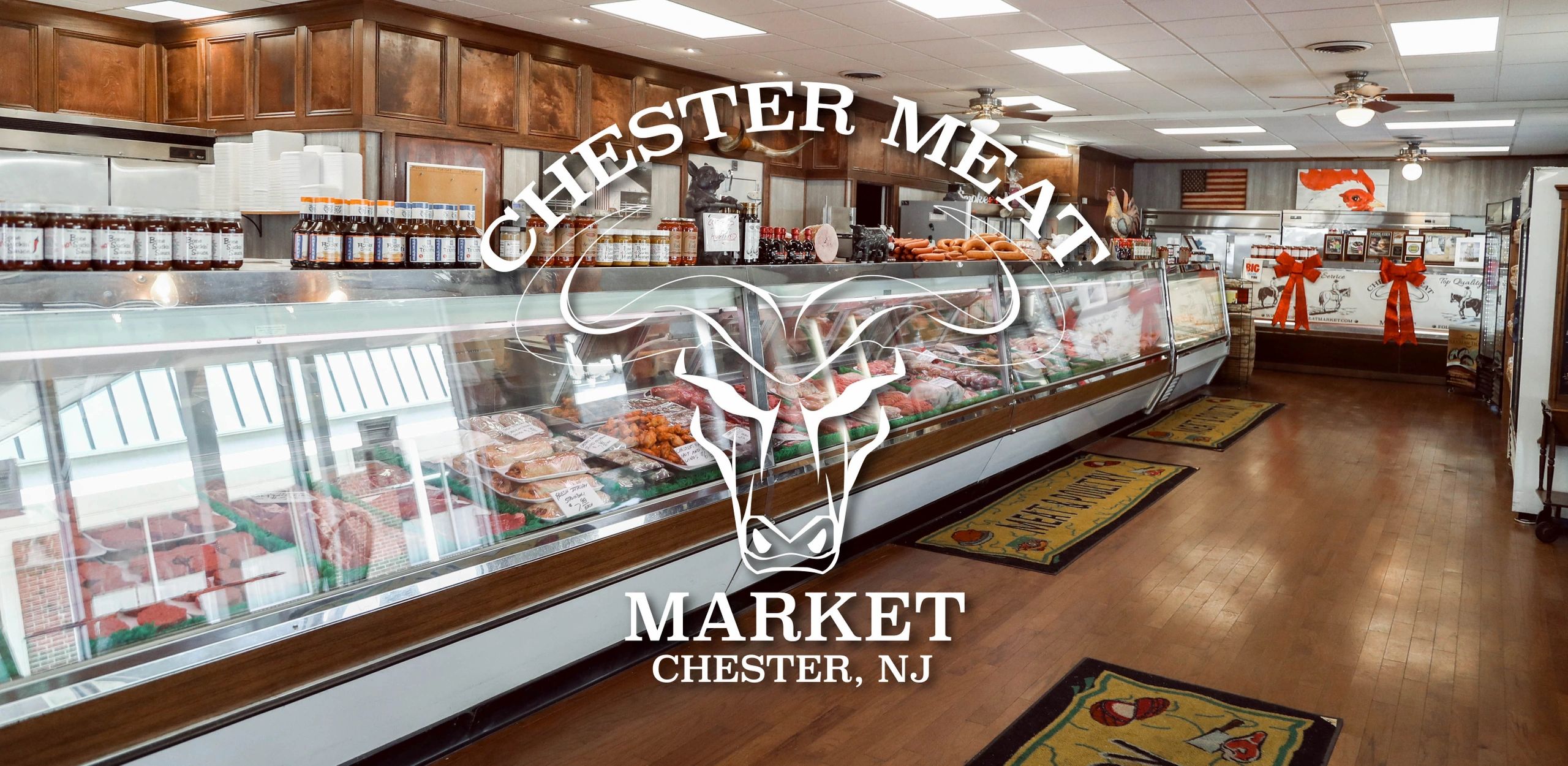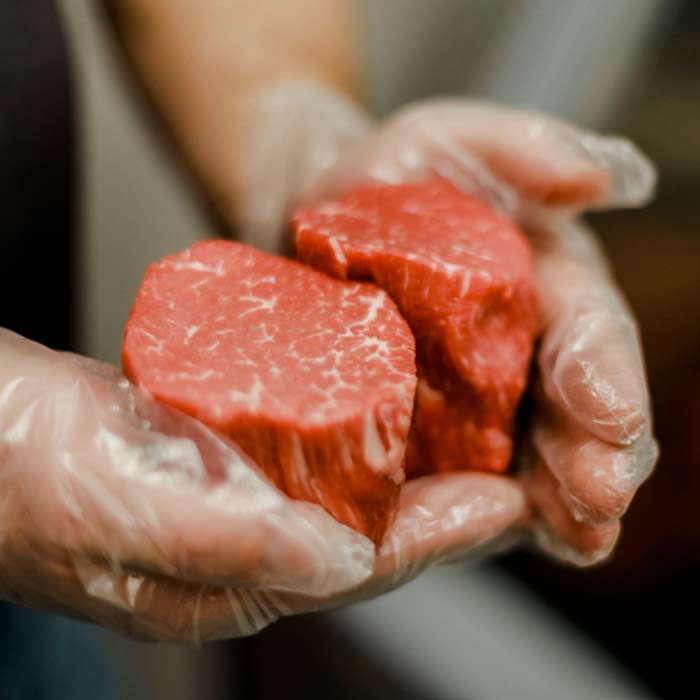Why Purchasing at a Regional Meat Market Guarantees Fresh, High-Quality Cuts
Buying at a neighborhood meat market uses distinct advantages that usually go unnoticed by customers accustomed to bigger retail chains. These markets provide straight access to fresh, high-quality cuts, a result of reduced transportation time from farm to counter. This not just improves taste but likewise supports regional farmers, cultivating community relationships and sustainable methods. Extensive high quality control determines ensure that each acquisition meets high requirements of safety and security and freshness. Yet, the effects of picking regional prolong past immediate benefits, triggering a better assessment of what this choice absolutely suggests for both customers and the regional economic climate.
Advantages of Regional Sourcing
In the realm of food purchase, the advantages of regional sourcing attract attention prominently. By acquiring meat from regional markets, consumers get direct access to products that are frequently fresher and more tasty than those located in bigger, commercial supermarkets. Neighborhood sourcing reduces the moment and distance food takes a trip from ranch to table, which not only improves preference but additionally maintains dietary value.

Furthermore, regional sourcing often gives transparency concerning the origins of the meat. Consumers can ask about the farming methods used, animal well-being criteria, and whether the meat is grass-fed or natural. This information encourages consumers to make educated choices straightened with their worths.
Quality Assurance Requirements
Regional meat markets usually follow rigorous high quality control requirements that guarantee the products provided meet high safety and quality criteria. These requirements typically include different phases of the meat manufacturing process, from sourcing to managing and storage space.
First, regional markets typically establish rigid supplier requirements, guaranteeing that just trusted ranches and producers are made use of - bagley meat market edwardsville il. This lowers the chance of contamination and advertises higher pet welfare standards. In addition, several regional meat markets execute regular examinations to validate that the meat is refined under hygienic problems, better reducing health and wellness risks
Temperature control is one more crucial facet of top quality guarantee. Local meat markets often monitor refrigeration systems to keep optimal storage temperature levels, making certain that meat continues to be fresh and risk-free for usage. Additionally, the implementation of traceability systems allows markets to track the beginning of their products, supplying openness and liability.
Last but not least, staff at local meat markets are commonly trained to identify indications of putridity and understand proper handling techniques. This commitment to quality assurance not just raises the total requirement of the meat yet also fosters customer trust fund, making regional meat markets a trustworthy source for top quality cuts.
Sustaining Neighborhood Farmers
Sustaining regional farmers is necessary for cultivating a lasting food system and boosting neighborhood durability. When customers pick to go shopping at neighborhood meat markets, they directly add to the incomes of farmers in their region. This not just sustains the neighborhood economic situation but also reinforces the farming field, ensuring that it continues to be lively and feasible.


Additionally, sustaining regional farmers promotes a sense of area and link in between producers and customers. It motivates transparency in food sourcing and infuses trust, as clients can develop relationships with the people who raise their food. This straight connection eventually causes an extra engaged and informed public, which is critical for promoting for sustainable farming methods in the future.
Lasting Practices
Sustainable methods in meat markets play a crucial role in advertising ecological stewardship and making certain animal welfare. Regional meat markets frequently focus on sourcing their items from ranches that execute lasting and honest farming approaches. These practices consist of rotational grazing, which helps preserve dirt health and reduces carbon discharges, together with minimizing using antibiotics and hormones in livestock.
Moreover, local meat markets generally stress openness in their supply chains. Clients are offered with information pertaining to the beginning of their meat, permitting them to make enlightened choices that line up with their values. By supporting neighborhood farmers who practice lasting approaches, consumers add to the conservation of biodiversity and the reduction of transportation exhausts connected site here with long-distance meat circulation.
Additionally, several regional meat markets take part in waste reduction approaches, such as making use of every component of the pet and promoting off-cuts that might or else go unsold. By cultivating a much more lasting method to meat consumption, these markets not just give premium products yet additionally add positively to the environment and animal well-being. Essentially, buying at a regional meat market straightens consumers with a broader movement in the direction of moral and responsible food sourcing.
Individualized Customer Care
Shopping at a meat market often includes even more than simply the products provided; it is additionally concerning the experience and the partnerships built between consumers and staff. Customized client service is a hallmark of local meat markets, establishing them aside from larger grocery chains. Experienced personnel make the effort to recognize individual client preferences, guaranteeing that each check out is tailored to specific demands.
Customers benefit from skilled suggestions check out here on cuts, food preparation approaches, and preparation tips, fostering a sense of count on and loyalty. This tailored interaction permits clients to ask questions and look for recommendations, bring about notified purchasing choices. Personnel commonly remember normal consumers and their preferences, developing an inviting environment that grows neighborhood ties.
Additionally, customized service reaches special requests, such as customized cuts or particular preparation methods, which bigger sellers may not fit. This level of focus reinforces the dedication of neighborhood meat markets to high quality and consumer complete satisfaction.
Essentially, individualized consumer solution not just improves the purchasing experience but additionally ensures that customers leave with the best items suited to their cooking demands, making every see a gratifying one.
Verdict
Supporting neighborhood farmers cultivates community partnerships and reinforces the neighborhood economy, while lasting techniques contribute to environmental stewardship. Additionally, personalized consumer service improves the shopping experience, making regional meat markets a preferred option for customers looking for both high quality and honest factors to consider in their food sourcing.
The effects of choosing neighborhood expand beyond immediate benefits, motivating a closer exam of what this selection absolutely suggests for both consumers and the neighborhood economic climate.
Supporting neighborhood meat markets likewise contributes to the neighborhood economy. Local meat markets frequently keep an eye on refrigeration systems to keep ideal storage space temperatures, making sure that meat remains fresh and secure for intake.Neighborhood farmers are typically much more attuned to the particular needs of their neighborhoods, growing plants and raising livestock that align with local preferences and choices. Sustaining neighborhood farmers cultivates community connections and reinforces the neighborhood economic situation, while lasting techniques add to environmental stewardship.